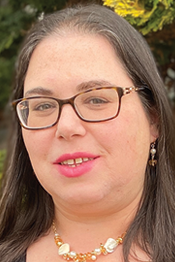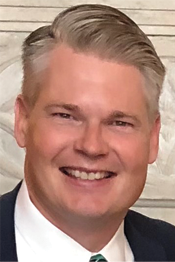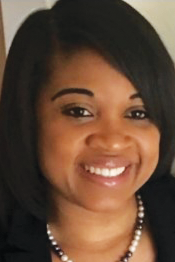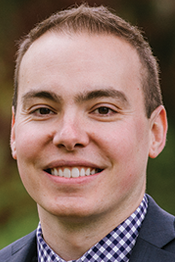It’s remarkable that New Jersey schoolchildren haven’t developed a bad case of whiplash this year. In school. Out of school. Hybrid instruction. In-person instruction. When it was too dangerous to be in class, schools closed quickly, leaving students marooned in front of their computer screens, while teachers scrambled to miraculously keep their education going.
It’s no surprise, then, that educators and experts alike are wondering — what’s next? How can we help students and staff get ready for next year? Should they be drilled on skills during the summer? Should kids be encouraged to get away from their computers and relax this summer with friends?
“Put yourself in the perspective of a nine-year-old,” said U.S. Secretary of Education Miguel Cardona in a March 24 interview with Education Week. “Students have been looking at a computer for the better part of a year as they learn. So any summer learning enrichment experience really needs to be re-engaging students… It could be connected to a museum visit. It could be connected to a summer camp… They learn through those experiences, or they write about those experiences, or they connect math to it.”
New Jersey educators are making their summer plans, puzzling over how to reach children without burning them out. For example, Sharon King-Dobson, director of student services in the East Rutherford School District in Bergen County, said that her 748-student, K-8 district is aware that students have had a wide variety of academic experiences during the pandemic.
“Some kids are really thriving in this environment, while others are not,” she said. “So our plan has to be a multifaceted approach.” East Rutherford is considering offering a summer academic camp with STEM (science, technology, engineering and math), and the visual and performing arts.
“We want to create a fun learning environment, just to get students into the mindset of being in school again,” she said, “showing them that learning is fun in case they forgot that.”
Unfortunately, as educators try to plant seeds that will take root this summer, they are being buffeted by conflicting demands and continued uncertainty. One study by the National Education Association showed that 28% of the teachers, tired of the stress, are thinking of leaving the profession.
Come September, it is likely that many students will still be unvaccinated. Health concerns may resurface and fears may spread about new strains of the virus. So how, then, in this roiling, turbulent time, do educators make plans that account for the current state of mental health of children, while preparing them, somehow, during the summer and into the fall?
To explore this issue, School Leader interviewed four respected educational leaders in New Jersey — experienced administrators with a history of establishing strong social-emotional programs in their communities.
- Amy Hassa, a social worker and school board president from Hamilton Township, Atlantic County, discussed how, as they recover from the pandemic, schools can become an integral part of their communities, providing services that strengthen families and effectively address the needs of students.
- Dr. Lee McDonald, director of counseling, health and wellness for the West Windsor-Plainsboro Regional School District in Mercer and Middlesex counties, discussed strategies to reintroduce students and parents to the rhythms and routines of school.
- Sharon King-Dobson, director of student services for East Rutherford, who was introduced earlier, explained that while the virus created an uncertain world, accountability kept her students on course. Attendance and truancy policies have been “fiercely enforced,” she said.
- Steve Fiedeldey, founder of Fiedeldey Consulting in Passaic County, uses his trauma-informed approach to ensure that staff and students practice self-care, so that they can continue to handle stress, function and make sense of the conflicting demands put upon them.
Through Service and Connection, Schools Will Learn the Needs of Students and Families
 Amy Hassa came to the virtual interview with her hair soaking wet. She’d been out in the rain, feeding about two dozen homeless people in her town, most of whom she knows by name. A social worker with a master’s degree, Hassa, who is president of the Hamilton Township school board, says that to serve the people in the community, “you have to be in the trenches with them.”
Amy Hassa came to the virtual interview with her hair soaking wet. She’d been out in the rain, feeding about two dozen homeless people in her town, most of whom she knows by name. A social worker with a master’s degree, Hassa, who is president of the Hamilton Township school board, says that to serve the people in the community, “you have to be in the trenches with them.”
That’s why, working with an extensive and dedicated network of volunteers, Hassa feeds more than 100 families, and her school district provides free meals, seven days a week, to nearly half of the 2,800 students in Hamilton. The official unemployment rate is 15.2%, but many others are underemployed, working for far less than it takes to feed a family.
During an hour-long interview with School Leader, she talked about how her Atlantic County township was rocked by the pandemic, the state of mind students and families are in today, and what it will take to get students acclimated to a school routine again in the fall — if the coronavirus will allow students to return to full-time in-person instruction.
In February 2021, “we had a terrible loss, we lost a vice principal,” she said — Kara Bluth. “She was just all heart. She made a huge impact on the kids… She made sure that every single person wearing a mask had an ID card with their picture on it, and it had a word of affirmation and positivity on the back.” Bluth’s death rocked the school. The board of education rallied the staff to help them recover from this painful loss.
“Our board came together, and we made breakfasts for the staff because, well, I grew up in an Italian home, and when people are sad, you feed them,” Hassa said. Especially in the time of the pandemic, she said, listening to children and families was the key to helping them. When families were in quarantine, Hassa’s volunteers remembered which kids had birthdays and dropped off cakes for them.
Hassa sees the K-12 school district as the hub of the community. Providing service also provides information about which kids are struggling, which parents need help, and which kids could move faster, and learn more, if the district could further integrate new technology into the curriculum.
The district established an online Mental Health Initiative, with about two dozen services, links and resources available to parents, educators and families on the website.
In addition to resources and opportunities, there will be challenges ahead, she cautions. Kids are out of practice being in school. An unknown percentage of families are going to be afraid to send their children back to school because most children will not be vaccinated by the fall.
Discipline and the students’ attitudes are likely to be a problem. For example, she says, a child may have heard, for an entire year, from a parent or authority figure at home that the coronavirus is not a serious threat and that facemasks are not necessary. A student who has been told this for a year may have a hard time accepting requirements to keep everyone safe in school.
“Students are out of practice,” she said, and it will take some time to restore the routines of the classroom.
She acknowledges that standardized tests provide crucial information but believes that now is not the time to test students. It is time, she said, to listen to students and to “meet them where they are.” Mostly, she said, the key to success in the fall is to “be prepared for the unknown.”
Helping to Reintroduce Students and Families to School
 When school resumes in the fall, the goal for many districts will be for students to be in school, in person, five days a week. For tens of thousands of students, this will be the first time in nearly 18 months that they have set foot inside a classroom.
When school resumes in the fall, the goal for many districts will be for students to be in school, in person, five days a week. For tens of thousands of students, this will be the first time in nearly 18 months that they have set foot inside a classroom.
School Leader asked Lee McDonald, director of counseling, health and wellness at West Windsor-Plainsboro Regional School District, to discuss what can be done to help students, parents and staff feel comfortable and safe. As of March 26, nearly 70% of the students at West Windsor-Plainsboro were still attending class remotely. Here are some of McDonald’s suggestions to help them and others.
Find What Academic Support Students Need “What sort of academic support do students need in terms of enrichment opportunities, resources, and possible remediation to address their learning needs?” he asked. “If kids are feeling in a good place academically, that’s going to ease some of their mental health burden.”
Welcome Them Back into the Building, Before Classes Start “It can be something as simple as open houses” — following existing social distancing requirements and health protocols. Students and parents could be reassured, walking the hallways, re-entering classrooms. Students could re-enter a science lab, he suggests, or if they are just beginning high school, they could set foot inside a science lab for the first time. Maybe they could engage in a short lesson, he suggested, “to give them a taste of what the experience will be like come September.”
Conduct ‘Parent Universities’ At West Windsor-Plainsboro, “we’ve been running parent universities for a long time,” he explained. Recent sessions addressed such topics as overcoming child and adolescent anxiety. Other topics dealt with video game addiction and substance abuse awareness. The sessions give parents a chance to ask questions and learn how to collaborate with schools to help their children.
Asked to identify one thing that has surprised him as he has dealt with students’ social-emotional health during the pandemic, McDonald said, “their resiliency…It never ceases to amaze me, how resilient people have been,” he said, referring to the teachers, the parents, the kids. “As bad as things can get sometimes … we know we are going to get out of this, and we’re putting plans in action to be ready for September.”
East Rutherford: Enforcing Attendance Standards, and Using Data to Address Learning Loss
 Sharon King-Dobson, the East Rutherford director of student services, keeps precise attendance statistics in her 748-student K-8 district. During her School Leader interview, she had monthly reports at her fingertips, showing class attendance, whether virtual or in-person, was well over 90%.
Sharon King-Dobson, the East Rutherford director of student services, keeps precise attendance statistics in her 748-student K-8 district. During her School Leader interview, she had monthly reports at her fingertips, showing class attendance, whether virtual or in-person, was well over 90%.
Although school districts around the nation have reported that many children are simply failing to show up for virtual instruction, such behavior is not tolerated in her Bergen County district. Attendance policies and truancy rules are “fiercely enforced,” she said.
“Where we do have a number of absences, we file a report, and we will contact the families,” she said. “Believe me, we’ve had parents who have thrown up their hands and said, ‘We can’t do this.’ Our first question to them is how can we support you? What do you need?”
Only about 10% of the school districts in New Jersey participated in the state’s voluntary Start Strong assessments, which identified which students needed help in dealing with learning loss incurred during the pandemic. East Rutherford was one of the few districts to participate, and it is using the data it collected to help students who may have fallen behind academically.
“We were in that 10%. We had the data,” she said. “We saw where our kids were, and then we started offering an additional session during the school day to address those gaps that we identified right across the board.” In the summer, the district plans to offer an intervention program, including one-to-one tutoring.
The district had its own performance data, in addition to Start Strong assessments, so it helped students right away.
“The evidence was there,” said King-Dobson. “Why wait?”
No Chaos, No Conflict; Meeting in the Middle to Make Schools Safe
 Twelve years ago, when he was 26, Steve Fiedeldey, got the scare of a lifetime. Late at night, working on his school psychology internship, he felt a lump in his neck. It was stage three cancer — Hodgkin’s lymphoma. Suddenly, all of his plans for his life, for his family, were in jeopardy.
Twelve years ago, when he was 26, Steve Fiedeldey, got the scare of a lifetime. Late at night, working on his school psychology internship, he felt a lump in his neck. It was stage three cancer — Hodgkin’s lymphoma. Suddenly, all of his plans for his life, for his family, were in jeopardy.
The father of three young children talks freely about how his cancer changed his life and affected how he works to solve problems and deal with trauma. In too many ways, he was left alone to deal with his illness. The hospital didn’t offer the support he needed. When he was offered his first job, he was still getting his hair back from chemotherapy treatments. But he had learned something about trauma.
It’s important to deal with the real issues, he said, but it’s equally important to listen with respect. If you provide a safe space where people can share their feelings, they can, through restorative practice, learn how to develop the coping skills they need.
Let Go of Perfection “I think that everyone’s trying our best to excel in all things, to be the best parent, to be the best partner, to be the best teacher, and to do things that normally came easy to us,” he said. “We’re now struggling to excel in any of them.”
Teachers, he said, are doing their best and they feel tremendous guilt when they can’t reach their students. In many cases, the first step to coping with trauma is being able to safely speak about it, which he does in listening circles with his clients to help them normalize their feelings.
The way we go into September without chaos, he said, “is we stop the binary idea that there is a correct or incorrect way to reopen schools.”
Virtual Instruction in September Looking ahead, he said, “I think that there will still be students learning virtually. I think we need to look at limiting their exposure to trauma by making sure that schedules are done appropriately, that we get parent feedback in a timely manner, so we know who to plan for being in-person, and who to plan for being remote.”
The nation’s political climate is influencing the school debate, and that needs to stop, he said.
“It breaks my heart,” he said. “COVID has been such a polarizing issue. It only continues to polarize with the reopening process, those who want kids back five days a week, full time in-person, and those who have medically fragile people at home or for whatever other reasons want to keep their kids virtual. We’re at war with each other,” he said, “instead of saying where can we meet in the middle?
“Why don’t we work on supporting each other rather than tearing each other down? It’s very unfortunate to see that there’s an idea that there is one right way to do this.”
